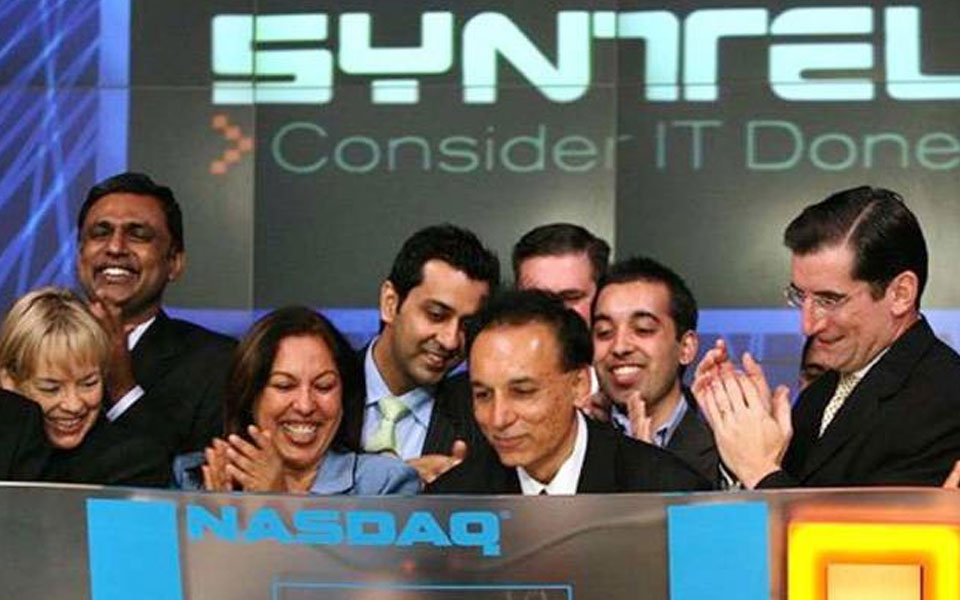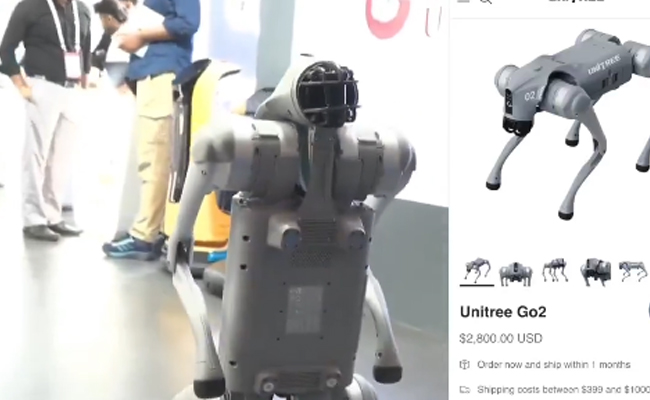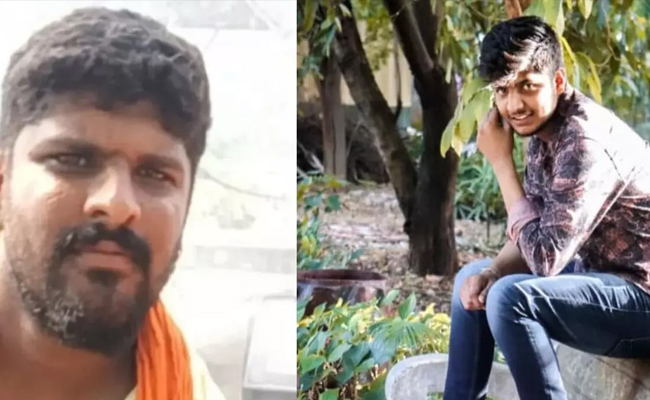Syntel co-founders, Bharat Desai and his wife Neerja Sethi, have seen their rankings dive on the Forbes Richie Rich lists in the past few years. Desai, who was ranked the richest Indian-American in the World Billionaires list in 2014, came in at No. 1999 in the 2018 rankings. Similarly, Sethi ranked 21st on the magazine's list of America's 60 self-made richest women, down from rank 14 in 2015.
But with the couple recently selling Syntel to French technology services major Atos SE for $3.4 billion, their fortunes are going to see a sharp turnaround. According to The Times of India, they jointly held a 57 per cent stake in the company, which means that they will walk away with nearly $2 billion from the all-cash deal expected to close by the end of this year. That's a pretty impressive way to end a journey that Desai and Sethi embarked on 38 years ago, when they started Syntel from their apartment in Troy, Michigan.
Kenya-born Desai, who grew up in India and graduated from IIT-Bombay, reportedly moved to the US in 1976 as a programmer for Tata Consulting Services. After working there briefly, he went on to pick up an MBA degree from the University of Michigan. It was here that he met Sethi and the duo decided to start an IT company while they were still studying.
At an entrepreneur event in 2013 in Delhi, Desai reportedly said that "I always wanted to run a business of my own. I was a horrible employee and could not live by anybody else's rule. So, the best way was to start my own company. My wife is the toughest board member." He had further stated he knew the IT services industry would grow significantly and with the right moves, "we could outpace overall growth."
The report adds that Syntel, modelled along the lines of TCS in some ways, was set up with an initial investment of just $2,000 in 1980. It went on to post revenues of $30,000 in its first year and got a massive boost when it signed on General Motors as a client. Though it started out as an IT staffing company, it soon evolved into a firm providing IT applications services. In 1992, it opened the first of its multiple India Global Development Centers, and five years on the company not only went public but also managed to grow its turnover to the $100 million milestone. It is currently nine times bigger - Syntel raked in nearly $924 million in 2017.
In April, after releasing its first quarter results, the 23,000-employee company had said that it expects revenue of $920-960 million in 2018, based on an exchange rate assumption of Rs 65 to the dollar. But if the dollar continues to remain as strong as it is currently, the figures will likely move up.
Yet, despite all this, Syntel failed to soar to heights of tech giants. Consider Infosys for instance. Though it started just a year after Syntel, today it is India's second largest IT services firm with over $10 billion in revenue, 10 times that of Syntel.
Desai and Sethi had a dream run in the years leading up to the dotcom bust - including bagging the 2nd spot in Forbes' "200 Best Small Companies in America" rankings - but then Syntel's share price plunged in 2000-2001.
The company recovered and its share price rallied an impressive 1766 per cent on the NASDAQ between 2001 and 2015, before running into rough weather again. In 2016, the stock plunged from $46 to about $19 per share in just over two months after the company declared a special cash dividend of $15 per share in September 2016.
"The special cash dividend will be funded through dividends to the Company by U.S. subsidiaries, the one-time repatriation of approximately $1.24 billion of cash held by the Company's foreign subsidiaries and a portion of borrowings under a new senior credit facility," the company had said at the time, adding, "In connection with the one-time repatriation, the Company expects to recognize a one-time tax expense of about $264 million (net of foreign tax credits) in the third quarter of 2016."
In the bargain, the company also had to downgrade its earnings per share outlook to a loss, which prompted a massive selloff of the stock, from which it is yet to fully recover. Nonetheless, the share prices have jumped nearly 110 per cent in the past year, which partly explains the price now paid by Atos.
courtesy : businesstoday.in
Let the Truth be known. If you read VB and like VB, please be a VB Supporter and Help us deliver the Truth to one and all.
New Delhi: A Noida-based private University, Galgotias has come under severe criticism after allegedly showcasing a china-made robotic dog at the India AI Impact Summit 2026 in New Delhi.
Social media users accused the university of purchasing a commercial robot from China and presenting it as its own creation at the summit.
Reports claimed that the university showcased the Unitree Go2 robotic dog, an AI-powered device available on Chinese platforms for Rs 2–3 lakh, under the name “Orion” during the event in New Delhi.
“So Galgotia university purchased a commercially available robot worth Rs 2.5 lakhs, called it their own and passed it off in the Delhi AI Summit as a part of their 350 crore AI ecosystem..I literally have no words left,” wrote ‘X’ user Roshan Rai, sharing a video in which a DD News reporter interviewed a university official about the robotic dog.
So Galgotia university purchased a commercially available robot worth ₹2.5 lakhs, called it their own and passed it off in the Delhi AI Summit as a part of their 350 crore AI ecosystem 😭😭
— Roshan Rai (@RoshanKrRaii) February 17, 2026
I literally have no words left.
pic.twitter.com/tTozvotO5m
The viral post claimed that the robot closely resembles Unitree Go2, a quadruped robotic dog developed by Chinese company Unitree Robotics.
Screenshots attached to the post compared the robot displayed at the summit with the Unitree Go2 listing, priced at roughly 2,800 dollars (around Rs 2.3–2.5 lakhs).
According Unitree Robotics, The Unitree Go2 is widely used as a programmable quadruped robot for research, education, inspection, and development purposes, and is a common learning platform in universities and robotics labs worldwide.
Several users reiterated the claim.
🚨 Galgotias University again.
— Mr Sharma (@sharma_views) February 17, 2026
Showcased a commercially available $2,800 robot as an “AI breakthrough.”
No evidence of ₹350 crore original R&D.
This is how credibility erodes.
STOP EMBARRASSING INDIA ON THE WORLD STAGE. pic.twitter.com/SyJyIntRLa
This is Unitree Go2, an AI-powered Chinese robo dog that you can buy from Chinese websites for ₹2–3 lakh.
— THE SKIN DOCTOR (@theskindoctor13) February 17, 2026
Galgotias University, Gr Noida, presented it as their multi-crore AI innovation by naming it Orion at the AI Summit. Even Ashwini Vaishnaw, the concerned minister, used… pic.twitter.com/0ZoIAJCors
Government of India funds for filing patents
Meanwhile, concerns were raised about alleged misuse of government funds.
User @sky_phd highlighted, “Galgotias University is once again in the spotlight. Under the guise of research and innovation, they are raking in plenty of money.”
The user claimed that the university took money under government funds, and wrote, “The Government of India provides incentive funding of up to five lakh rupees for filing patents.”
“To understand the patent filing process and the games being played with it, take a look at the list of top Indian institutions filing patents. All the Indian Institutes of Technology (IITs) together file only 803 patents, while institutions like Lovely Professional University, Jain Deemed-to-be University, Galgotias University, and Teerthanker Mahaveer University have filed more than a thousand patents each,” the user wrote, sharing a chart of patent filings by these universities.
“The basic international patent filing fee is $285–400. Through patent filings alone, these institutions are reportedly earning more than fifty crore rupees annually. However, while these universities file patents, they often do not pursue them further, and most patents ultimately do not get granted. This inflates filing numbers but does not reflect real innovation or recognized intellectual property,” the user added.
Galgotias University एक बार फिर चर्चा में है। रिसर्च और इनोवेशन के नाम पर खूब पैसा बना रहे है। भारत सरकार पेटेंट फाइल करने के लिए पाँच लाख रुपये तक की प्रोत्साहन राशि देती है।
— Santosh Yadav, Ph.D. (@sky_phd) February 17, 2026
पेटेंट फाइलिंग की प्रक्रिया और इसके खेल को समझने के लिए टॉप पेटेंट फाइल करने वाले भारतीय संस्थानों की… pic.twitter.com/6gv6HzwM1l
Another user pointed out about the selection criteria of the summit. The user questioned, “What exactly was the selection criteria for participation in this AI summit? .”
“Platforms meant to showcase India’s innovation should represent genuine research, original ideas, and credible institutions. So how did Galgotias University qualify to display a Chinese-made robot and present it as its own “innovation”? If true, this isn’t just embarrassing, it undermines the credibility of the entire summit and of India’s growing tech ecosystem. At a time when India is trying to position itself as a global AI and deep-tech leader, showcasing repackaged imports as indigenous innovation only damages trust. If we want the world to take India’s AI ambitions seriously, transparency and authenticity must come first,” the user added.
Serious question: What exactly was the selection criteria for participation in this AI summit?
— Adarsh (@OpinionKraft) February 17, 2026
Platforms meant to showcase India’s innovation should represent genuine research, original ideas, and credible institutions.
So how did Galgotias University qualify to display a… pic.twitter.com/WJRAgXTMf6
University clarifies after backlash
In response to the criticism, Galgotias University issued a clarification, stating that it “never claimed to have built the device” and that the robot was procured from a Chinese manufacturer for academic purposes.
“Let us be clear, Galgotias has not built this robodog, nor have we claimed to do so. What we are building are minds that will soon design, engineer, and manufacture such technologies in Bharat," the university said.
The university in its statement also pointed out that the Unitree Go2 is being used as a learning tool for students.
“From the US to China and Singapore, we bring advanced technologies to campus because exposure creates vision, and vision creates creators. The robodog is actively being used by students to test capabilities and explore real-world applications,” the university added.
— Galgotias University (@GalgotiasGU) February 17, 2026
University professor claims “it's developed by the Center of Excellence at the Galgotias University.”
In another video captured by DD News, a reporter showcased the Galgotias University pavilion at the India AI Impact Summit 2026.
At the pavilion, the reporter spoke with the university professor about the technology on display.
The professor introduced the robot, saying, “This is Orion. You need to meet Orion. It has been developed by the Center of Excellence at Galgotias University.”
She added, “I would also like to brief you about Galgotias University. We are the first private university investing more than Rs 350 crore in artificial intelligence and have a dedicated data science and AI lab on campus.”
“Orion has been developed by our Center of Excellence. It can take all shapes and sizes and is quite playful. It can perform small tasks such as surveillance and monitoring. It can even execute movements like moonwalks and somersaults,” she explained.
She also claimed that, “This is India’s first iOS lab in North India at a university, giving our students hands-on experience with cutting-edge technology.”
Have some shame, in this video ur Professor is clearly saying that it's developed by Galgotias University. pic.twitter.com/xt5MkL8KEN
— Aniruddh Sharma (@AniruddhINC) February 17, 2026
Reacting to the video social media users ridiculed the 350 cr rupees investment compared to the china made robo dog.
Past Controversies of the University
This is not the first time the university is in controversy. In May 2024, during the Lok Sabha elections, a video went viral showing students protesting outside the Congress headquarters in New Delhi against the party’s manifesto. The footage, captured by Aaj Tak, showed students struggling to articulate the purpose of their protest, raising questions about the demonstration’s intent.
Students of Galgotias University are holding a protest against Congress , failing to answer the reason behind it #getstrolled #GalgotiyaUniversity #protests #trolled
— the swipe (@theswipenews_) May 2, 2024
Credits - Aaj Tak pic.twitter.com/xo87HLvngL
Earlier, in 2017, students protested against the university management after being barred from appearing in exams due to low attendance, with allegations that fines were requested to allow attendance, a claim denied by the administration.





